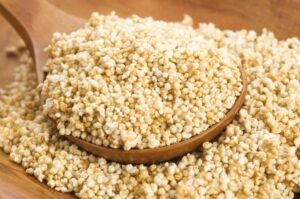Amaranth: What You Need To Know

Amaranth, an ancient, nutrient-dense grain, has been a major staple of the human diet for centuries, boasting numerous health benefits. Amaranth is an especially important source of nutrition in areas where other food sources may be limited, and has been widely used to support populations in need of sustenance. With its impressive nutritional profile, it is no surprise that amaranth is regarded by many as a “super-food”, providing essential vitamins and minerals as well as numerous other beneficial compounds.
Amaranth contains several essential amino acids, including lysine and methionine, both of which are lacking in many grains and legumes. These amino acids support optimal growth and development, and are especially beneficial for pregnant and lactating women. Amaranth is also rich in minerals such as iron, magnesium, phosphorus, zinc, and calcium, which support the production of red blood cells and strengthen the skeletal system.
Amaranth is also a rich source of B vitamins. Vitamin B6, in particular, has been shown to reduce levels of homocysteine, an amino acid that is associated with an increased risk of heart disease. Vitamin B6 also helps the body to process energy more efficiently, fights off fatigue and supports a healthy metabolism.
In addition to its vitamins and minerals, amaranth also contains a range of powerful phytochemicals, compounds that have been shown to promote health and prevent disease. These phytochemicals include antioxidants like quercetin and rutin, which help to protect the body against free radicals linked to the development of certain types of cancer and other diseases. Amaranth is also a good source of fiber, which helps to lower cholesterol levels and improve digestion.
Finally, amaranth is incredibly versatile and easy to incorporate into meals. It can be cooked like a porridge or used to make bread, pancakes, or muffins. It can also be popped like popcorn, added to soups, salads, and stews, and used as a substitute for flour in baked goods.
In conclusion, amaranth is an excellent source of nutrient-dense, wholesome nutrition that offers numerous health benefits. With its impressive concentrations of vitamins, minerals, phytochemicals, and essential amino acids, amaranth is a true “super-food” that can easily be incorporated into regular meals to promote health and well-being. Not only does it provide essential nutrition, but it is also very versatile, ensuring that everyone can find a way to enjoy its delicious benefits.

Comments